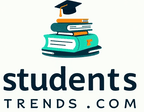To meet the demands of the modern job market, education is becoming more personalized, interactive, and skill-oriented through the integration of AI, automation, and digital tools. This is known as education 4.0.

Key Technologies in Education 4.0
I & Machine Learning: Personalized study plans and instant feedback.
VR & AR: Immersive learning experiences.
IoT: Smart classrooms for better teacher-student interaction.
Cloud-Based Learning: Remote access to study materials.
Gamification & Adaptive Learning: Enhancing engagement and retention.
Benefits of Education 4.0
More Accessibility: Education transcends regional boundaries;
Higher Engagement: Interactive tools make learning enjoyable;
Customized Learning Paths: AI-driven content catered to individual needs;
Future-Ready Skills: Emphasize digital literacy, critical thinking, and problem-solving.
Challenges for the Future
“Limited access to technology is known as the “digital divide.”
“Upskilling teachers for ICT integration is a need for teacher training.”
“Data privacy, Protecting student data.”
“Investing in digital infrastructure will result in high implementation costs.”
Education 4.0 is influencing the future through big data analytics, blockchain, and artificial intelligence, guaranteeing a more effective, student-centered learning environment.

FAQs That Learners Asked
Q1: What makes Education 4.0 different from traditional education? A: It uses AI, automation, and digital platforms to create personalized learning experiences.
Q2: How does AI impact Education 4.0? A: AI analyzes student progress, adapts content, and provides instant feedback for improved learning.
Q3: What are the main challenges in adopting Education 4.0? A: Digital divide, teacher training, data security, and high implementation costs.

With more than 20 years of experience in higher education leadership, Ruth E Lugo has held prominent academic positions at a variety of institutions, concentrating on key areas such as student learning, faculty development, curriculum design, and institutional accreditation. As the Team Chair for eleven accreditation evaluations with the Middle States Commission on Higher Education, she has successfully directed thorough assessments that uphold academic standards and regulatory requirements. Furthermore, Ruth has provided consulting services to major international institutions, offering guidance on accreditation processes, strategic planning, and governance frameworks. Her extensive knowledge in assessment, budget management, and collective bargaining, combined with her commitment to academic excellence and institutional effectiveness, make Ruth E Lugo a passionate champion for shared governance in higher education.
